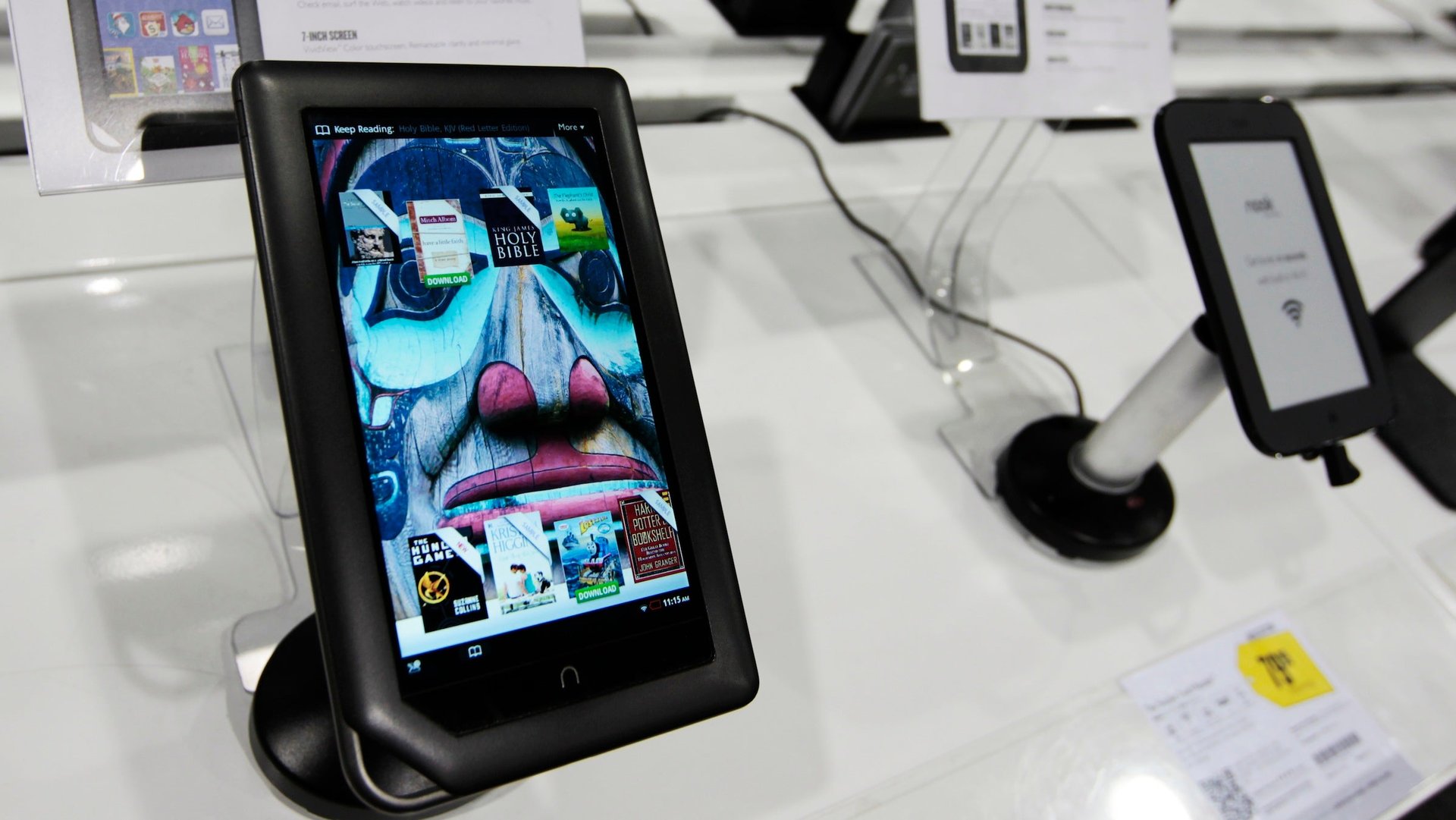Does the Barnes & Noble bookstore buyout mean it’s going to stop making the Nook?
Barnes & Noble founder Leonard Riggio has offered to help save the struggling US bookseller by buying its bookstores. In doing so, he could be signaling that the company is going to stop building its Nook e-reader, which is made by a separate division.


Barnes & Noble founder Leonard Riggio has offered to help save the struggling US bookseller by buying its bookstores. In doing so, he could be signaling that the company is going to stop building its Nook e-reader, which is made by a separate division.
Barnes & Noble launched the Nook in 2009 to compete with Amazon’s Kindle. But since then, alternative ways to read e-books have proliferated: not only tablets, but also mobile phones with increasingly better and bigger screens. In addition, though dedicated e-readers have fallen in price, so have tablets, at similar rates. So while dedicated e-readers are still generally cheaper than tablets, fewer people seem to be buying them: Market research firm IHS iSuppli estimated that in 2012, shipments of e-readers fell by about 36% compared to 2011, while sales of tablets and mobile phones continue to grow.
Like Amazon, Barnes & Noble has adapted to this trend by creating tablet versions of the Nook as well as continuing to make cheaper e-ink readers. Yet despite rave reviews for the latest Nook tablet, customers this past holiday season turned to competitor tablets like the iPad, Samsung Galaxy and Google Nexus.
The trends spell trouble for the Nook, which is not as popular as the Kindle. Barnes & Noble said earlier this month that earnings for the Nook division in 2013 would likely decrease from 2012, and that revenues for 2013 would be less than its initial estimate of $3 billion.
Amazon has kept up better in its Kindle sales: it offers the cheapest e-readers (at $69 in the US, to the Nook’s $79), and boasts that its Kindle Fire HD is cheaper than the iPad mini and has better screen resolution. The New York Times reports that Barnes & Noble is thinking of getting out of the hardware business, to concentrate on selling its e-books through other manufacturers’ devices. If so, Riggio’s buyout of the bookstores could be a first step towards that.